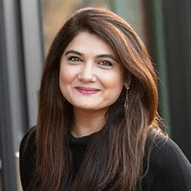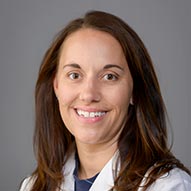Dallas
214-456-8131
Fax: 214-456-0654
Just like adults, children can experience various types of headaches, including tension, sinus and migraine.
Headaches are fairly common among children and teens of all ages. Headaches are one of the top five health problems that affect children, with 40 percent of children suffering from headaches by age seven and 75 percent by age 15. Most headaches are harmless, but if they persist and get worse over time, they could be a sign of a serious problem, such as a brain tumor (very rare).
Most head pain is harmless, and will usually go away on its own. You should take your child to a doctor immediately if they experience any of the following symptoms in combination with a headache:
The most common type of headache that children experience are tension headaches (stress headaches). Other types include:
If your child has a cold or allergies, the openings of his or her sinuses may be blocked mucus or swollen tissue. The pressure caused by swelling and congestion causes sinus headaches. Some symptoms of a sinus headache are pain or pressure in the forehead or around the eyes and cheeks, or tender areas over and under the eyes. When your child blows his or her nose, bends down, or jumps, the headache may get worse.
Migraines (especially severe headaches that seem to run in families and may be caused by physical and chemical changes in a child’s brain) Migraines occur when blood vessels in the brain constrict temporarily. Children with migraines may experience pain that affects the whole head; attacks lasting from less than an hour to several hours; nausea or vomiting that lasts after head pain subsides; abdominal pain and/or car sickness; a sudden start to severe pain; sensitivity to light and noise; dizziness; lack of energy; and blurred vision.
When your child visits his or her provider, or comes in for an evaluation at the Children’s Health Headache Clinic, we will:
If your child passes these tests, is otherwise healthy, and shows common symptoms – no further tests are needed. Your provider may recommend:
In some cases, the provider may order imaging scans to pinpoint a diagnosis or rule out other medical conditions. These tests can include:
Common causes of headaches in children include:
Common triggers for migraines include:
For common tension headaches, your provider will recommend lifestyle modifications, avoiding triggers, and treating headaches with over-the-counter pain medications if needed. Children with chronic migraines may need prescription medications. Headaches stemming from colds and sinus infections should respond to regular treatment of those conditions.
Certain children with severe headaches may benefit from nerve blocks (numbing) or Botox injections.
Your provider and/or the team at the Headache Clinic may also recommend relaxation and behavior modification techniques; rest; a healthy diet and adequate water intake; use of a cool compress when headache symptoms arise; and keeping a headache journal to monitor symptoms.











Roughly 40 percent of children suffer from headaches by age seven and 75 percent by age 15. Approximately 10 percent of children suffer with occasional migraines, with half experiencing their first attack before age 12.
Yes, four out of five migraine sufferers have a family history.
Yes, regular eating and sleeping, adequate water intake, exercise, stress management, and avoiding triggers – like certain foods – can help prevent some of your child’s migraine attacks.
If your child’s headaches wake him or her from sleep; worsen or become more frequent; cause changes in your child’s personality; follow an injury, like a blow to the head; feature persistent vomiting; or are accompanied by fever and neck pain or stiffness – see a provider immediately.